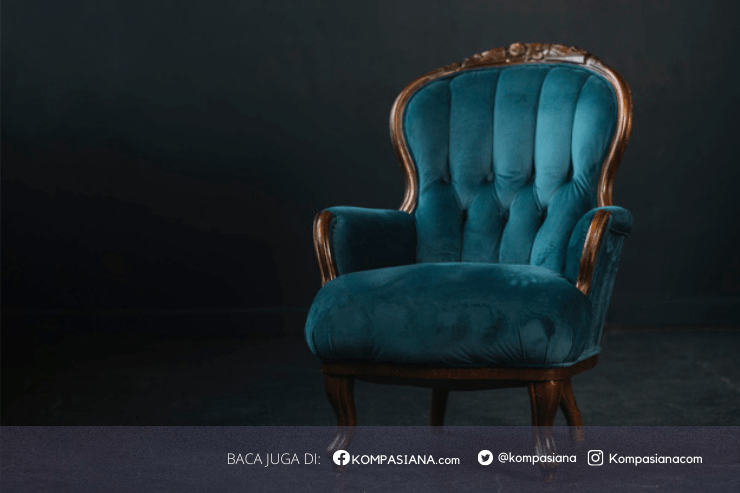Discussion and debate about a Russian military attack on Ukrainian territory have been a rising topic for the past two weeks. The attack was described by many as a short attack to warn Ukraine not to play politics that could be seen as endangering Russia. But now the attack in question has entered its third week, which, according to some analysts, is entering the phase of determining whether it will be long or end here.
Whatever the reason, military attacks that take human lives cannot be justified, and they are enemies of humanity. The victims who fall from the two warring parties are the victims of humanity due to the failure of international cooperation mechanisms to create a world of peace, upholding humanity, and justice. We cannot justify any reason that could prolong the humanitarian crisis that is imminent.
The existence of NATO as a product of World War II, which to this day still exists despite the existence of a world body, the United Nations, is an anomaly in the imagination of global relations after the world war. The absence of other defence pacts besides NATO makes this defense pact seem to be a judge for other countries that also have geopolitical defence interests.
The use of the term "invasion" for Russia's action while agreeing to Israel's attack on the grounds of defence before being attacked by other country is a dualism that confuses the public, likewise in the case of American attacks on Iraq, Afghanistan, and many other nations. NATO seems to justify its members who attack humanity in non-member countries while judging as invasion to other countries who doing the same with similar argument.
The United Nations which only grants the Security Council veto power to 5 permanent member states with a unanimous consensus mechanism for decision making is felt to hamper world peace. This mechanism, although it has been criticized from the start by many other countries, is still in effect today. This also makes the UN Security Council resolution for Ukraine-Russia peace deadlocked. The democratisation glorified by members of NATO as the great way, is far from being practiced at the UN.
As an independent country, Ukraine's eagerness to become part of NATO is seen as an attempt to protect the country. However, what Russia sees to Ukraine plan is also not to blame. While NATO is the world's only major military defence pact in the world, Russia will certainly perceive this as a threat to its defences. War is an absolute enemy of humanity on one hand; however, the will of state sovereignty and national defence cannot be ruled out.
Reflection on the Cooperation Mechanism of the Rotterdam Convention
What we saw in the Russia-Ukraine war is also a picture of the consensus mechanism of world bodies which are powerless in the face of the development of the situation and democratisation. The unanimous agreement between the imbalance of positions is a kind of legalised trespass. The common good as the ultimate goal of world cooperation does not succumb to the majority of votes as well as does not become an elite as if only a small number of parties have full rights to determine the direction of the world's good.
In the last discussion of the Rotterdam Convention (2019) to include Chrysotile in the list of prior information consent (PIC) of hazardous materials in world trade transactions, Russia and several other countries trespassed with the available consensus mechanism. With the consensus mechanism, more than 67 countries that voiced to include Chrysotile in the PIC were not considered at all due to Russia and 10 other countries who voiced differently. Victims due to the asbestos trade which continues to grow are considered normal business impacts that can occur on other goods.
If in the Ukraine-Russia conflict, there are America and NATO with their hegemony influencing Ukraine, as if they will accept Ukraine as a member of NATO irritate Russia. As so in the Rotterdam Convention, Russia, China, and Kazakhstan have the hegemony not to include chrysotile in the PIC irritate asbestos related disease victims.
The US-NATO interest in becoming a hegemony in world defence is as great as the Russia-China-Kazakhstan interest in the carcinogenic mineral business exported worldwide. Just as democracy continues to be a product of defence pact sales over the world, chrysotile-asbestos is also a product that continues to be forced into selling goods throughout the world, regardless of the benevolence considerations of the target country.
Russia, which is in a strong position in world institutions, will indeed find it "easier" to face an opponent whose strength is also equal to it in the Ukraine-Russia conflict. America-NATO faces a difficult opponent in this Ukraine-Russia case. However, in the matter of the Russia-China-Kazakhstan chrysotile, this group does not have equal opponents in the debate over the process of including it in the PIC. As a result, until this day, chrysotile is still frozen to enter the PIC.
Seeing the propaganda that fills the public sphere even far away in Indonesia regarding the Russian attack on Ukraine, we can also reflect about the crisis debate. Ukraine, which builds narration and representations as victims of Russian violence, can be seen at the same level with the Russian campaign that asbestos-chrysotile is discriminated in the Rotterdam Convention.
Russia's propaganda in its attack on Ukraine saying that Ukraine started an attack on a friendly country (Crimea, Donbass) recognised by Russia for its independence and jeopardises its geopolitics, is like their propaganda to build a narrative as a helper for the development of a third world country through cheap materials. Moreover, Russia is also campaigning that by safely using asbestos, they also have the same concerns as those who reject the asbestos trade.
The consensus mechanism will indeed be a good thing if all countries/parties are in a balanced position without any particular party having greater rights than others. Consensus requires openness in communication and a willingness to accept and consider the arguments of various parties. This mechanism has been proven in various places to have failed to create agreements for the common good. Both in the UN agency and the organs under it.
Resolution Push for Indonesia
Facing the deadlock on the consensus road which is dominated by certain parties, Indonesia should be able to build a way to get out of the stagnation. This ability was once demonstrated by the First President, Soekarno with the Non-Aligned idea which brought together newly independent countries into a single force that did not take sides with the political blocs after the second war.
In the case of Ukraine-Russia, we are quite surprised by Indonesia's siding with the UN Security Council resolution proposed by America et al. By condemning the invasion (the use of the word "invasion" is the NATO political perspective), like it or not, Indonesia has sided with one of the parties to the conflict. This is not favourable for Indonesia's position. We can condemn the military attacks that endanger humanity carried out by both Russia and Ukraine without having to judge what Russia did as a form of invasion. Similarly, Indonesia can also take a stance to condemn the trade in dangerous goods without a PIC.
Indonesia should take the attitude to ask Russia and Ukraine to stop fighting and start building a constructive dialogue without the intervention of other parties such as NATO members. Likewise, it is important for Indonesia to ask the Rotterdam Convention to temporarily stop the asbestos-chrysotile trade until the best arguments between the two sides are diametrically debated. Indonesia can mediate by distancing NATO from the Russia-Ukraine debate within the framework of peaceful resolution and humanitarian sustainability.
Likewise, Indonesia can act to ask Russia, China, Kazakhstan to stay away from the chrysotile debate. NATO, as well as asbestos-exporting countries both have an interest in maintaining their dominance to other.
With dominant countries involved in peace talks, and vetoes still in effect, it is hard to imagine peace will ever be achieved. The world needs a new cooperation mechanism that places all parties on the same level. Democratisation and participation should not only be commodities for certain countries only to cover the original intention to become hegemonic. Democracy must also be practiced in the existing mechanisms in world institutions. This is nothing but to maintain the honour and efficacy of this world cooperation institution in its honourable and respected position.
The Rotterdam Convention as a mechanism for a trusted world institution needs to be encouraged to restoration itself so that the benefits of its existence can be felt for all parties. Not limited to only useful for those who have a great interest in building their hegemony.
The consensus mechanism, which was originally a human way to dialogue thoughts and differences, turned into a political tactic to push for minority tyranny. The majority value is not necessarily a measure of the common good, but handing it over to a small group of decision makers (the elite) also jeopardises the goal of the common good.
Indonesia's position is important to encourage the restoration of the world's cooperation mechanism. With the fourth largest population, and strategic geopolitical position, Indonesia deserves to play this big pendulum for the great interest of the people. As a market, Indonesia is a big potential market for world product innovation. Likewise with regard to regional politics in East Asia, the Middle East, and Southeast Asia with the largest Muslim population in the world. Indonesia's proposal submitted with confidence will undoubtedly become important for other countries.
Will the Indonesian government be confident enough in the international agenda to carry its humanitarian political pendulum?
This is where the importance of public support to bring confidence to the government. Civil society groups who think and act for the nationality will of course be a critical group in government policies, but they will be at the forefront of fighting for the interests of their nation. Such groups are different from political groups (parties) whose interests - are by nature - the position in the government.
In many international agreement mechanisms, unanimous consensus that still allows vetoes, and minority tyranny, governments must be encouraged to dare to come out with rational solutions for the common good.
Follow Instagram @kompasianacom juga Tiktok @kompasiana biar nggak ketinggalan event seru komunitas dan tips dapat cuan dari Kompasiana
Baca juga cerita inspiratif langsung dari smartphone kamu dengan bergabung di WhatsApp Channel Kompasiana di SINI







